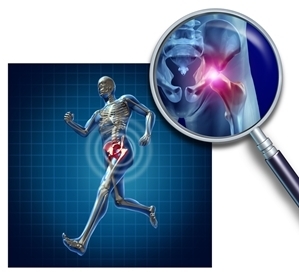As a travel nurse, there's a good chance that you've heard a patient or two forecast rain due to their aching joints. In fact, new research from professionals at Erasmus University Medical Center Rotterdam recently found that patients with hip osteoarthritis may feel the effects of barometric pressure and relative humidity on their bones.
Study findings
Authors of this investigation aimed to find out whether or not there was an association between the clinical symptoms experienced by hip OA patients and ambient weather conditions. Using a cohort study, the researchers tracked weather variables such as wind speed, precipitation and temperature, to name a few. A total of 222 primary care patients took part in the study, and data was collected regarding their hip pain and disability using the Western Ontario and McMasters University Osteoarthritis Index scale. After all of the data was collected and reviewed, it was found that relative humidity and barometric pressure were both associated with higher pain scores in the patients. However, the other weather factors were not found to have any effects.
"This is something that patients talk about all the time," Dr. Patience White, a rheumatologist and the vice president for Public Health Policy and Advocacy for the Arthritis foundation, told Reuters Health.
In fact, the source points out that 27 million Americans have OA, so it's likely that you have treated a number of patients with this most common form of arthritis while on travel nursing assignments. And while reports of the weather causing a patient to be bedridden are uncommon, it does lead to added discomfort due to their condition, according to the study. However, White pointed out that these findings provide no real useful evidence for researchers, as weather conditions cannot be controlled. Yet still, it is likely that patients will find it useful.
Other weather related health news
This isn't the only study to come out recently suggesting that the weather can affect the population's health. In fact, LiveScience reported on research from Yale University that found that cold weather and severe temperature changes can increase an individual's risk of stroke.
"We really need to explore more about what the weather, as an external stressor, could mean for disease such as stroke," study author Judith Lichtman told the source.
Based on this investigation, professionals are unsure how cold temperatures increase risk of stroke, but it may be due to a link between weather and high blood pressure. Still, further research is needed, but this is important information for those who are already at risk of cardiovascular issues, such as patients suffering from high cholesterol, diabetes or obesity who you are treating on travel nursing jobs. Although these current findings are preliminary, the researchers are hopeful that it's a step toward developing interventions for stroke prevention in the future. In the meantime, it's good to know how the polar vortex and drastic weather changes of this winter may be affecting at-risk individuals, who should be encouraged to take precautions.

